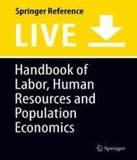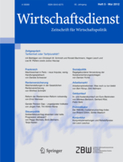Aktuelle Publikationen
Are the Supporters of Socialism the Losers of Capitalism? Conformism in East Germany and Transition Success
Neue Publikation von Max Deter und Martin Lange:
|
The empirical literature is inconclusive about whether a country’s democratization has a long-lasting impact on former supporters or opponents of the bygone regime. With newly available individual-level data of former residents of the socialist German Democratic Republic (GDR), we analyze how supporters and opponents of the socialist system performed within the market-based democracy after reunification. Protesters, who helped to overthrow the socialist regime in the Peaceful Revolution, show higher life satisfaction and better labor market outcomes in the new politico-economic system. Former members of the ruling socialist party and employees in state-supervised sectors become substantially less satisfied. These results do not seem to be driven by differential reactions in the post-transition period, but rather by the removal of discriminatory practices in the GDR. Additional results indicate that conformism in the GDR also explains political preferences over the almost three decades after the reunification of Germany. Finden Sie die Publikation hier. |
 |
Social Contacts, Unemployment, and Experienced Well-Being. Evidence from Time-Use Data
Neues Diskussionspapier von Andreas Knabe und An Hoang
|
We use the UK Time-Use Survey 2014/15 to analyze how differences in the frequency and intensity of social contacts contribute to the gap in experienced well-being between employed and unemployed persons. We observe that people generally enjoy being with others more than being alone. The unemployed generally feel worse than the employed when engaging in the same kind of activities, partly because they are more often alone. The unemployed can replace lost work contacts only partially with private contacts. In terms of experienced well-being, however, the small increase in time spent with family and friends (which people enjoy a lot) offsets the loss of work contacts (which people generally enjoy only little). Hence, we do not find that the differences in the social-contact composition between the employed and the unemployed contribute to the difference in their experienced well-being.
Finden Sie das Diskussionspapier hier. |
 |
Women’s Labor Market Responses to their Partners’ Unemployment and Low-Pay Employment
Neue Publikation von Andreas Knabe und Carina Keldenich:
| This paper revisits the added worker effect. Using bivariate random-effects probit estimation on data from the German Socio-Economic Panel we show that women respond to their partners’ unemployment with an increase in labor market participation, which also leads to an increase in their employment probability. Our analysis considers within- and between-effects separately, revealing differences in the relationships between women’s labor market statuses and their partners’ unemployment in the previous period (within-effect) and their partners’ overall probability of being unemployed (between-effect). Furthermore, we demonstrate that partners’ employment in low-paid jobs has an effect on women’s labor market choices and outcomes similar to that of his unemployment. |  |
Happiness, Work, and Identity
Neue Publikation von Clemens Hetschko, Andreas Knabe und Ronnie Schöb:
|
This chapter introduces identity utility to the study of (un)employment and (un)happiness. The concept is described in terms of an augmented utility function, the implications of which are assessed in light of the empirical literature on unemployment and well-being. Studies on unemployed persons' affective and cognitive well-being allow assessing the importance of the loss of identity utility relative to other nonmonetary consequences of joblessness, such as fewer social contacts and a lack of a structure in daily life. Unlike life satisfaction, unemployment leaves affective well-being mostly unaffected, which points to a major relevance of the loss of identity. This view is corroborated further by studies on the importance of the social norms to work and be self-reliant for the life satisfaction of the unemployed, as well as by studies showing the positive life satisfaction effect of retirement on unemployed workers. Based on this strong evidence for identity utility losses of unemployed persons, the notion of identity utility is used to explain heterogeneity in the effect of unemployment on life satisfaction. It is also linked to further consequences of unemployment, such as social exclusion and stigmatization. Moreover, this chapter uses identity utility to assess the likely effectiveness of labor market policies in alleviating the misery of the unemployed. Finally, research on work, happiness and identity is reconciled with a more standard economics view on labor supply based on studies examining the impact of working hours on workers' well-being. Finden Sie die Publikation hier. |
 |
